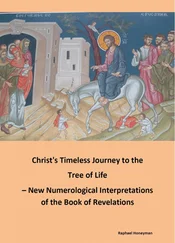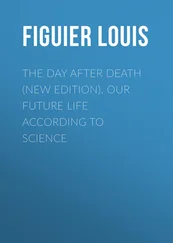Before the Bill could be published, however, Bevan had to sell it to the Cabinet and in October he sought a decision on ‘one big question of principle’ – whether to nationalize the hospitals. His argument was simple: the voluntary hospitals were dead. In this he had the backing of the magnificently named Sir Edward Farquhar Buzzard, a former President of the BMA and Regius Professor of Medicine at Oxford, who had publicly delivered the same diagnosis to the press a year earlier. 48To keep them going, Bevan told the Cabinet, around 80 or 90 per cent of their revenue under any national health service would have to come from public funds and ‘I believe strongly that we must insist on the principle of public control accompanying public financing.’ In this the teaching hospitals and postgraduates would be given special status on three grounds: their quality and standing; because ‘it is a good thing in itself to keep separate a field for independent experiment in method and organisation’; and because the state should not dictate the medical curriculum. The local authority hospitals too should be nationalised, he said. The great bulk of local authority areas were too small to run good ones, the rates could not bear the full cost of the service, and complex cross-financing arrangements would be needed if rich areas were not to have better services than poor ones. The ‘voice of the expert’ (chiefly the doctors) had to be brought into the planning and running of the services. There was thus a powerful case for ‘starting again with a clean slate’. 49Bevan acknowledged the proposal would mean ‘extinction’ for most voluntary hospitals and would ‘provoke an outcry’ both from them and from local authorities. The attitude of the doctors, he conceded, was uncertain. But again, probably unconsciously, he echoed MacNalty: ‘if the choice were before them between a primarily local government service and primarily nationalised service, the overwhelming majority would prefer the latter’.
In a tantalising aside, he acknowledged that if local government were reorganised into regions (a Labour policy) then the hospitals might revert to regional government. Given that an experiment loosely on these lines is underway at the time of writing – ‘Devo-Manc’ – it is worth exploring the reaction. His memo brought Herbert Morrison, Lord President of the Council, leaping to the local authorities’ defence. Morrison had made his name as leader of the London County Council in the 1930s, when local government, at least in terms of breadth of function, was in its heyday.
‘We should be cautious about any step which will weaken local government,’ Morrison argued. The government’s nationalisation plans were already likely to remove gas, electricity, probably passenger transport and possibly water from them. And Bevan, he complained, was ‘on the horns of a dilemma’. If the proposed appointed regional hospital boards were ‘subject to the Minister’s directions on all questions of policy, finance, establishments and so on, then they will be mere creatures of the Ministry of Health, with little vitality of their own’. Yet under a nationalised state system ‘it is difficult … to envisage the alternative situation in which, in order to give them vitality, they are left free to spend Exchequer money without the Minister’s approval and to pursue policies which at any rate in detail may not be the Minister’s, but for which he presumably would be answerable’. 50
Local government ran a better hospital service than Bevan gave it credit for, he said – adding in a touch of raw politics that the health minister would be launching a war with local authorities ahead of council elections in November and the spring. He offered, however, no solution to the voluntary hospital problem, admitted he had no ‘conclusive argument against nationalising the hospitals’, conceded that a nationalised system might be inherently more efficient, and opened with the courtesy of describing Bevan’s paper as ‘brilliant and imaginative’.
Four days later, desperate for a decision to get ahead with his plan, Bevan hit back, arguing that putting the voluntary hospitals under local government would ‘rouse a tornado compared with any passing thunderstorm my scheme may provoke’. He added: ‘any scheme which leaves responsibility for the hospital service with local authorities must be unequal in its operation. This would be unjust to the public who will pay equal contributions.’ The regional boards ‘would be the agents (though not, I hope, in any derogatory sense the creatures) of my department’ with ‘substantial executive powers, subject to a broad financial control’. If the scheme was sound, the political consequences need not be feared, and if Morrison described it as imaginative: ‘is not that exactly what we were returned to be?’ Neither of the present systems – municipal or voluntary – would do. Such a chance to make the health services ‘the admiration of the world … comes but once, perhaps, in a generation … if it is not done now it will not be done in our time.’ 51
The row went to Cabinet two days later, where Morrison reiterated objections that hospital nationalisation was not in the party manifesto: indeed, municipalisation had been Labour’s policy. Local pride and voluntary enthusiasm mattered, Morrison argued, and there would be ‘a very large transfer of liability from the ratepayer to the taxpayer’ under Bevan’s plan. He was backed by Chuter Ede, now Home Secretary, and some others. But Arthur Greenwood, chairman of the Cabinet’s social services committee, Ellen Wilkinson the education minister, and Emmanuel Shinwell, Minister of Fuel, backed Bevan as did George Buchanan, the Scottish health minister. Lord Addison, once Lloyd George’s Minister of Health, an anatomist who was ‘easily the most distinguished doctor ever to enter politics’ and who had effectively founded the Medical Research Council, did the same. The seventy-six-year-old Addison, now leader of the Lords, argued that nationalisation would greatly assist medical education. Attlee summed up strongly in Bevan’s favour. 52
What Morrison half hinted at, but which never in the 1940s became quite the core of the argument, is that in practice there are profound difficulties in having an elected body, which will almost inevitably come under party political control, disposing of purely central government funds – an argument that was to become even stronger in the 1980s when cash limits were introduced. Without their own funds the local politicians will blame all failures on lack of central government cash. They may even refuse to implement government policy, as was to happen with health authorities in the 1980s when local government had influence on them (though not control). Given the tendency of political control of local authorities to move against the government of the day, such a recipe is one for conflict rather than creative tension between the centre and the periphery. Only if elected bodies raise at least some of their own funds can the responsibility for running the service – and raising more from their electors if more is judged to be needed – be safely entrusted to them. It is a case, if conflict is to be avoided, of ‘no representation without taxation’.
Morrison lost the argument in October, but continued the fight, leaving Bevan to ‘damn and blast’ him to his wife Jennie Lee when he returned home at night. In December, however, the issue was finally settled in Bevan’s favour. 53For years afterwards Morrison would refer sourly to ‘Nye’s precious health service’, particularly after its launch when Bevan succeeded in extracting ever-growing sums for it despite the extreme financial difficulties Labour then faced. 54
When the Bill and accompanying White Paper 55were published in March 1946, however, it was not the idea of nationalising the hospitals but Bevan’s proposals for GPs which nearly sank the whole scheme. Ironically, these differed in substance not at all from the ideas the BMA’s own Medical Planning Commission had put forward three years earlier. But Dr Charles Hill, the scribe of that report and now the BMA’s Secretary, appeared to have forgotten everything.
Читать дальше
![Nicholas Timmins The Five Giants [New Edition]: A Biography of the Welfare State обложка книги](/books/701739/nicholas-timmins-the-five-giants-new-edition-a-cover.webp)











